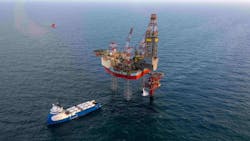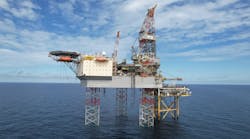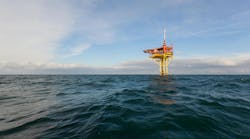CCS roadmap outlines technical issues that lie ahead with offshore carbon storage wells
The Net Zero Technology Centre (NZTC) and DNV have published their CCS Wells Technology Roadmap report, commissioned by the UK’s North Sea Transition Authority (NSTA).
This details more than 60 technologies said to be relevant to carbon storage well development and operation, with solutions related to materials and equipment; intervention and workovers; and monitoring and remediation of legacy oil and gas wells.
The NSTA expects the report will be a reference guide for UK offshore operators progressing 27 licensed CO2 storage sites.
Technical challenges identified for offshore carbon storage wells include accelerated corrosion, pressure cycling and extreme temperature fluctuation. And CO2 storage over the long term will involve extended monitoring periods, with some regulators globally likely to insist on more than 30 years of surveillance post-closure.
Among the technologies highlighted in the report are:
- Noble’s Corp.’s modular handling package for safe processing of CO2 during well control events (prototype testing should take place next year);
- Aquaterra Energy’s system for vertical reentry of legacy wells;
- Silixa’s fiber-optic sensors, which are designed to provide continuous data on well integrity and CO2 plumes; and
- Welltec’s Annular Barrier, which secures wells against CO2 leakage through the annulus.
The report was developed in collaboration with the offshore oil and gas industry, drawing on insights from operators and the supply chain. It also identifies technology gaps and priority areas for future research and innovation, and details revisions needed to existing regulations and guidance.
Industry collaboration and regulatory updates aim to enhance safety, transparency and innovation in offshore carbon storage operations.
NSTA helps licensees meet regulatory requirements
In addition, the NSTA has issued Stewardship Expectations to help CCS licensees in the UK North Sea to meet their obligations concerning risk assessment; appraisal and subsurface characterization; data acquisition and use for appraisal and monitoring; technology development and deployment; and stakeholder engagement.
The documentation includes guidelines on complying with regulatory requirements and best practice suggestions.
Score to supply valves, LDAR for INEOS' Greensand project
In August, Score Group secured a contract from INEOS Energy to supply 480 custom-designed manual and actuated valves for the Greensand CCS Project in the Danish sector.
Greensand will store 400,000 mt/year of CO2 initially, with capacity expanding to 8 MMmt/year by 2030.
Score also has framework agreements to provide leak detection and repair services (LDAR) for INEOS’ offshore facilities in the Danish North Sea, Ørsted’s Nybro onshore gas treatment center, and Energinet’s gas storage facilities at Lille Torup and Stenli.
For the LDAR services, Score is working alongside asset55, using the latter’s Operate software to provide emissions dashboards, survey data migration, image documentation and workflow optimization in compliance with EU regulations.
The goals include improved transparency across carbon storage operations.
About the Author
Jeremy Beckman
Editor, Europe
Jeremy Beckman has been Editor Europe, Offshore since 1992. Prior to joining Offshore he was a freelance journalist for eight years, working for a variety of electronics, computing and scientific journals in the UK. He regularly writes news columns on trends and events both in the NW Europe offshore region and globally. He also writes features on developments and technology in exploration and production.



